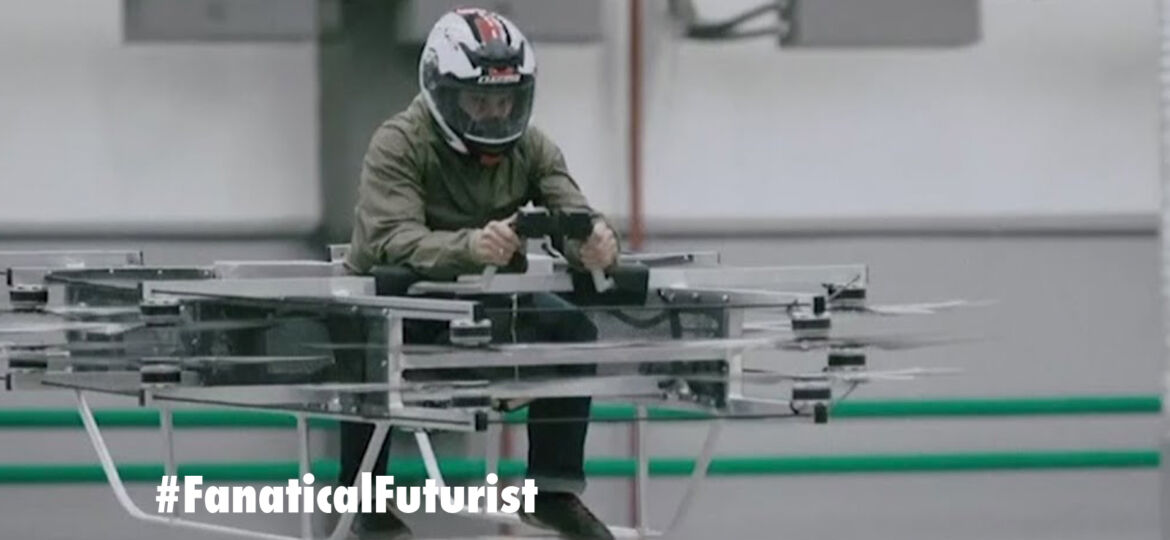
WHY THIS MATTERS IN BRIEF
Kalashnikovs new hoverbike has civilian and military use cases but most people will just want one to commute in.
Last week Kalashnikov, makers of the famous AK-47 and part of the Russian defence giant Rostec, announced that it’s branching out into what it calls “Rideables,” and for their first act they’ve produced an actual, working hoverbike that, admittedly, looks like a giant quadcopter.
Officially though the company is calling their new hoverbike a flying car, which, frankly doesn’t make any sense, and at the moment it’s unclear why they would want to dumb down such a magnificent sci-fi vehicle.
As you can see in the above video, there’s not much to it at the moment – just eight rotors joined together by a skeletal frame, a couple of joysticks, and what appears to be a couple of batteries located under the driver, and at the end of the video, you can see a shell or chassis superimposed over the vehicle, which gives you a better sense of how Kalashnikov might commercialise it.
After decades of being out of vogue and being labelled “crazy” or “stupid” or both it looks like flying cars, albeit mainly in the form of flying passenger drones, like the ones that are about to enter service in Dubai, are making a comeback with companies like Airbus, who recently showed off their concept, Chinese company EHang, and Uber, among many others all racing to build the first flying cars, taxis or whatever you want to call them, and create the first flying taxi networks.
So, finally, for those of you who are willing to loose an appendage or two, your day in the sun is arriving. Time to get those orders in.
















